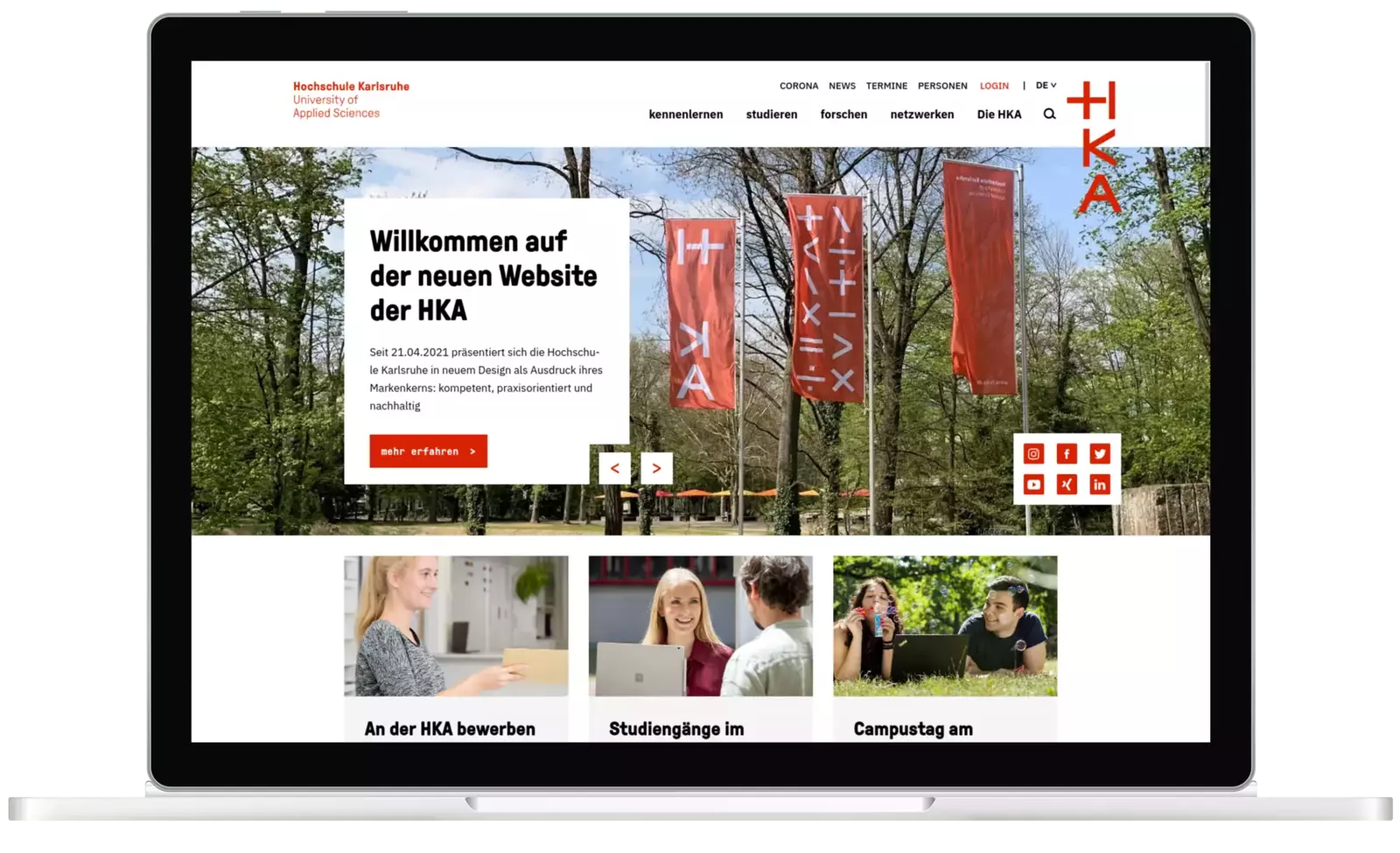H-KA - University of Applied Sciences Karlsruhe
The H-KA - Karlsruhe University of Applied Sciences - Technology and Economics offers courses in engineering, computer science, business and media disciplines. The entire range of courses is assigned to six faculties: architecture and construction, electrical engineering and information technology, computer science and business informatics, information management and media, mechanical engineering and mechatronics, and economics. With over 8,000 students, the Karlsruhe University of Applied Sciences is one of the larger universities of applied sciences in Germany.
The University of Applied Sciences Karlsruhe has been relying on the professional support of in2code for its web service provider for many years. Our service includes consulting and planning, project management, development and server support.
Infrastructure-as-Code
Not only the application (TYPO3 with all extensions and configuration) but also the servers are configured centrally in just one repository. This enables us to roll out and execute changes on all servers at the same time.
Without exception, we rely on Docker as the basis for the containerization of all servers.
The Relaunch
Since spring 2021, the Karlsruhe University of Applied Sciences has had a completely new corporate design. And not only within the building and outdoor advertising but also on the brand new website. This elegantly reflects the newly developed brand core. The domain was also adapted to the new name: www.h-ka.de
Within a very short time, together with the design agency and the university's relaunch team, we created a completely new website based on TYPO3 10. Agile processing in sprints was only possible through regular and close coordination with all parties. A team of 15 has developed new features in parallel, while a large number of editors have already added new content.
The Server
As one of the first universities, H-KA relies entirely on containerized environments for all of its web servers. Right from the start, a fixed principle was taken into account: working on a common code - for all parties involved. This concept is also known as Infrastructure-as-Code.
This enables all developers and DevOps to adapt servers as quickly and easily as possible. An update of the PHP version is no longer a big task in the future. Specifically, this also means that developers locally, product owners on a release system and the editors on the live system all work with exactly the same server configuration. Specific errors can now be recognized and eliminated at an early stage.
Technical Highlights
The decentralized course finder effectively reflects the current range of courses. Such data sets are created centrally by editors and displayed in many different places on the website.
In addition, there is a comprehensive list of people that is regularly synchronized via an LDAP server. This data can be enriched with further information and images after a login in the front end (via a single sign-on).
A university calendar with approval workflow allows appointments from the various departments to be displayed.
University calendar with approval workflow
A technical highlight in the project is the specially created university calendar. Depending on the assigned rights, certain editors (e.g. group of lecturers) can request appointments, which can then be approved or rejected by another authority. Depending on the category, dates are displayed in different places on the website.
A color coding system reflects the departments and faculties in the appointments. Of course, appointments can also be saved locally in iCal format.
Our services
Needs assessment
Concept
Design
Range of services
Infrastructure
Deployment
Training
Support
TYPO3 course finder
With the help of our course finder, courses are ideally reflected. These can be imported automatically and later enriched for editorial purposes. The design was optimally adapted to the modern website of the H-KA (see https://www.h-ka.de/en/study/study-in-german/bachelor)




